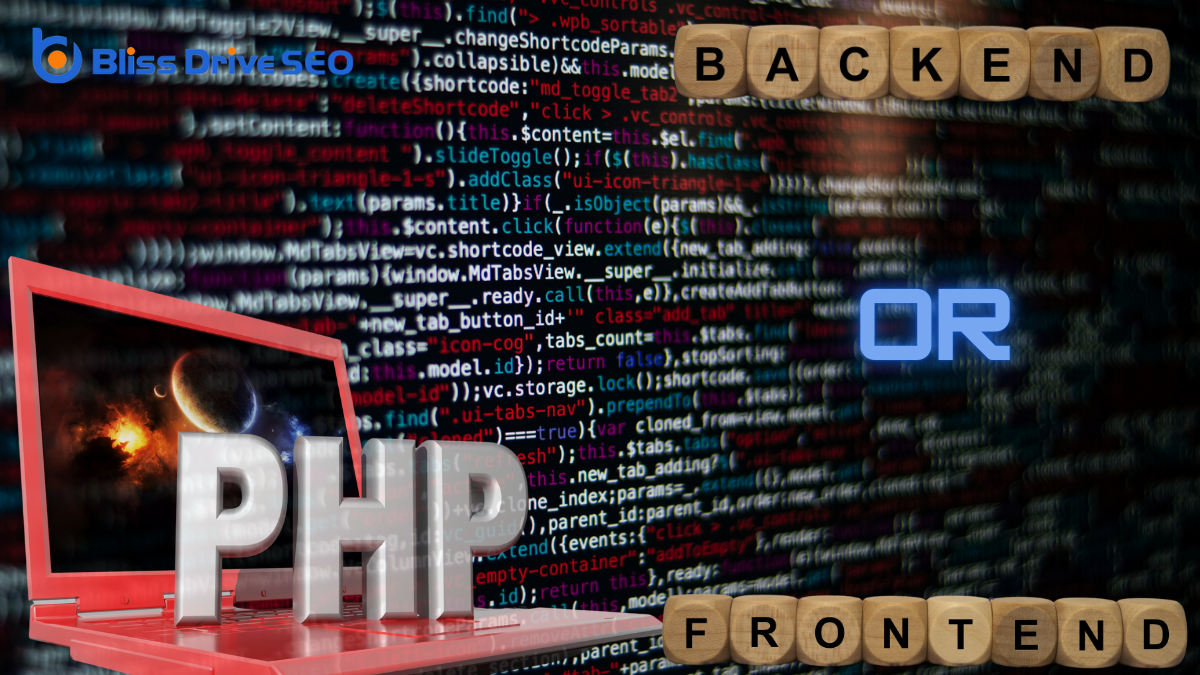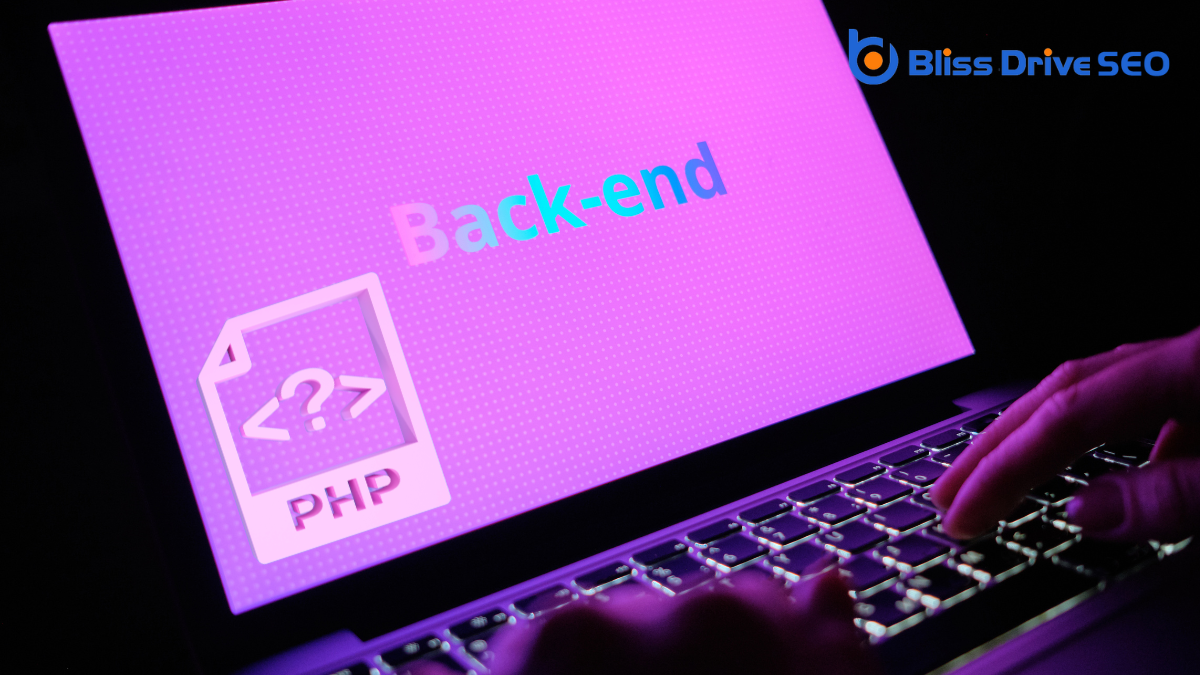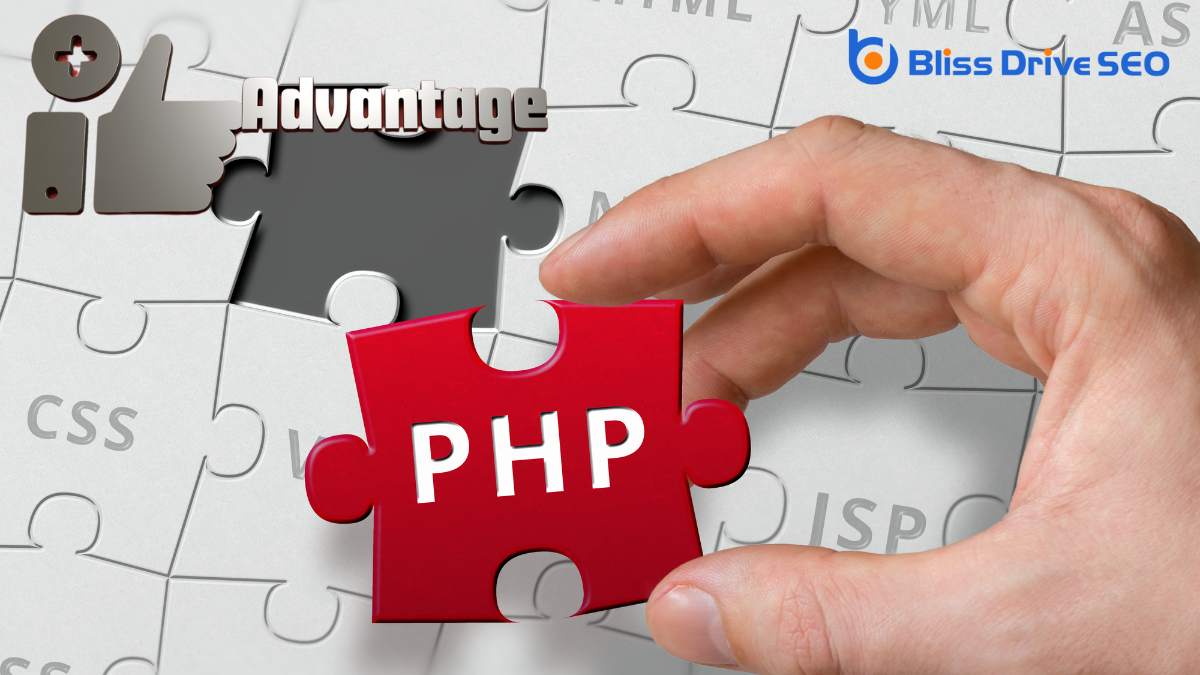Digital Marketing Services
Learn More About Us

When you think about PHP, you might wonder whether it's a backend or frontend language. Known primarily as a server-side scripting language, PHP plays an essential role in backend development by managing server tasks and database interactions. But don't dismiss its influence on front-end experiences just yet. By dynamically generating HTML, CSS, and JavaScript, PHP can shape what users see and interact with. This dual capability raises interesting questions about its place in web development. So, how does PHP integrate with other technologies, and what advantages does it bring to the table?
PHP, in its essence, is a powerful server-side scripting language designed primarily for web development. When you delve into PHP, you'll discover its core functionality revolves around generating dynamic page content.
Unlike HTML, which remains static, PHP allows you to create web pages that respond to user inputs, making your websites more interactive and engaging.
One of PHP's key strengths is its ability to seamlessly interact with databases. You can use PHP to retrieve, insert, and modify data stored in databases, which is vital for creating dynamic web applications like e-commerce sites or social networks.
This flexibility enables you to tailor content based on user preferences or actions.
Moreover, PHP supports a wide range of web protocols, including HTTP, LDAP, and IMAP, giving you the ability to build complex features with relative ease.
It can also handle form data efficiently, allowing you to process user input and manage it securely.

When considering PHP's role in web development, you'll find it excels in backend tasks. PHP is specifically designed for server-side scripting, allowing you to create dynamic web pages that interact with databases and servers. By processing data and executing tasks on the server before sending the results to the user's browser, PHP efficiently handles the heavy lifting involved in web development.
As you engage in backend development with PHP, you'll appreciate its ability to work seamlessly with databases like MySQL. This integration enables you to store, retrieve, and manipulate data effortlessly, making it a popular choice for building content management systems, e-commerce sites, and custom web applications.
PHP's compatibility with various database management systems provides flexibility, allowing you to choose the best fit for your project.
Moreover, PHP comes with a rich set of built-in functions and libraries, which help you perform common backend tasks like session management, file handling, and user authentication. These features reduce your development time and streamline your workflow.
The language's widespread use and active community mean you'll have access to extensive documentation and resources, making PHP an accessible and powerful tool in backend development.
Though PHP is primarily known for its backend capabilities, it can also play a role in front-end development. You mightn't immediately associate PHP with the front end because it's mainly used for server-side scripting. However, PHP can dynamically generate HTML, CSS, and JavaScript, which are important components of the front end.
When you're building a web page, PHP can be used to create dynamic content. For example, if you want the content of a webpage to change based on user interactionAny action taken by a user on social media, such as likes, comments, shares, or retweets. or data from a database, PHP can help you achieve that. It allows you to embed logic directly into the HTML, which means you can display different content based on certain conditions. This ability helps you create more personalized and interactive user experiences.
Moreover, PHP can be used to manage templates efficiently. By separating the logic from the design, you guarantee that your code is more maintainable and scalable. You can use PHP to include common elements like headers and footers across multiple pages, reducing redundancy and making updates easier.
While PHP's role in the front end isn't as prominent as JavaScript, it still plays an important part in delivering dynamic web experiences.
In the ever-evolving landscape of web development, integrating PHP with other technologies is essential for building robust and efficient applications. You might already know that PHP is a server-side scripting language, but how it interacts with other technologies can make a significant difference in your projects.
For instance, you can seamlessly integrate PHP with databases like MySQL to store and retrieve data, making your applications dynamic and interactive. You'll find that PHP works well with HTML and CSS to create the structure and style of web pages.
JavaScript can also be paired with PHP to handle client-side interactions, offering users a smooth experience. Additionally, PHP often integrates with frameworks like Laravel or Symfony, which provide tools and libraries to streamline development.
You can also connect PHP with RESTful APIs to communicate with external services, enhancing your application's functionality. By using tools like cURL, you can send and receive data to and from other platforms.
Moreover, PHP can be used with content management systems (CMS) like WordPress, making it easier to manage and update web content. Incorporating PHP with these technologies not only expands your development possibilities but also improves application performance and user experience.

Integrating PHP with various technologies opens up numerous possibilities, but the real strength of PHP lies in its inherent advantages.
First, PHP is open-source, meaning it's free to use and widely supported by a large community. This guarantees you'll always have access to a wealth of resources, tutorials, and forums where you can find solutions to your problems.
Another advantage is PHP's compatibility with various databases like MySQL, PostgreSQL, and MongoDB. This flexibility allows you to choose the best database for your project without compatibility concerns.
PHP is also known for its speed and efficiency. It runs on the server side, which means it processes data quickly, reducing the load on the client side and providing faster page loads.
PHP is easy to learn, especially if you're familiar with languages like C or JavaScript. Its syntax is straightforward, making it accessible for beginners while still offering advanced features for seasoned developers.
In addition, PHP is highly secure when used correctly, with built-in features that protect against common threats.
Finally, PHP's scalability makes it suitable for projects of any size, from small websites to large enterprise applications, giving you the flexibility to grow your project over time.
In understanding PHP, you see it shines as a backend powerhouse. It handles server-side tasks like user authentication and data processing, making web applications dynamic and efficient. While PHP can influence the front end by generating HTML, CSS, and JavaScript, its true strength lies in backend development. By integrating seamlessly with other technologies, PHP enhances the architecture of web applications, offering flexibility and robust solutions. Embrace PHP's capabilities to build dynamic, responsive websites that meet modern needs.
